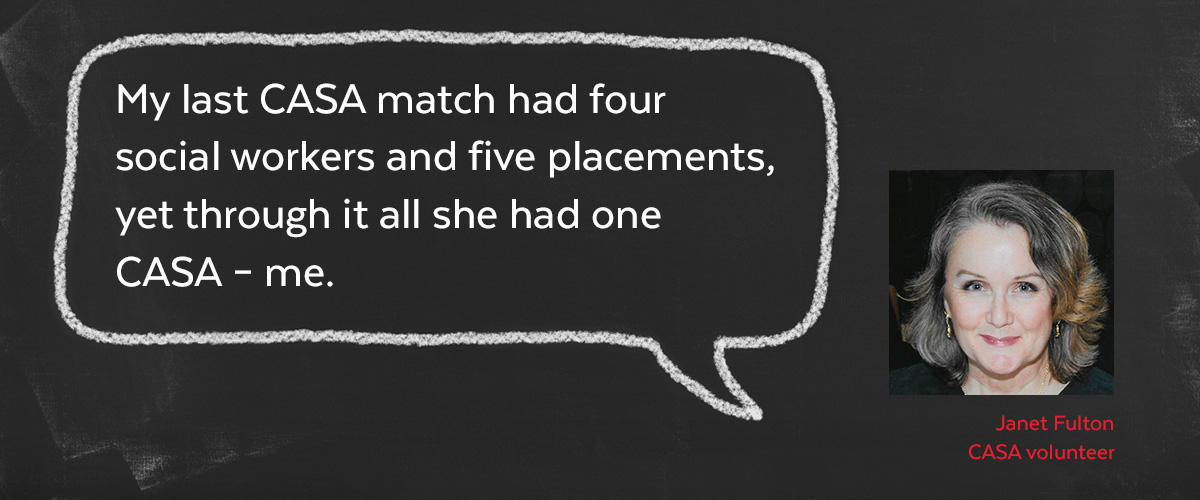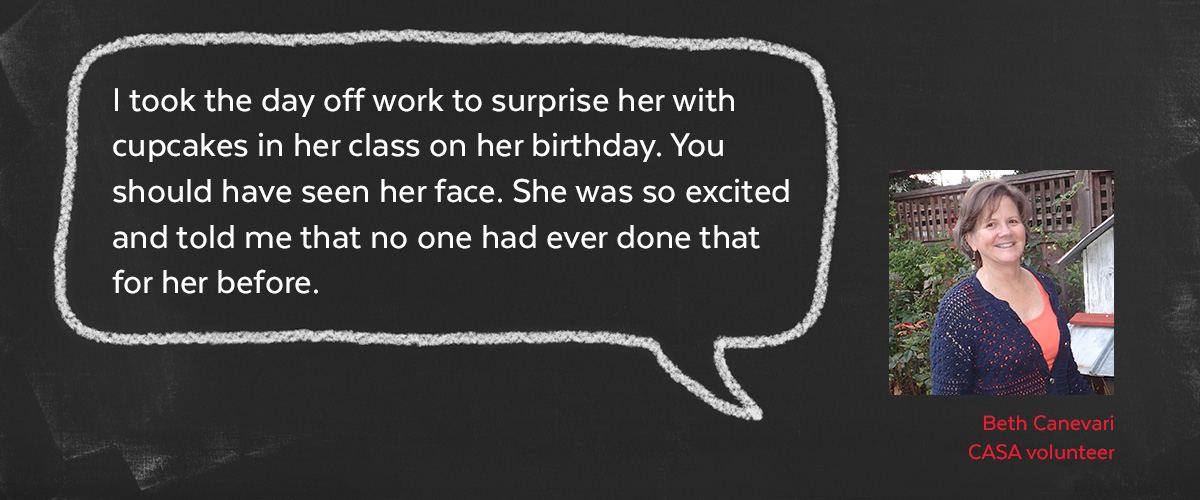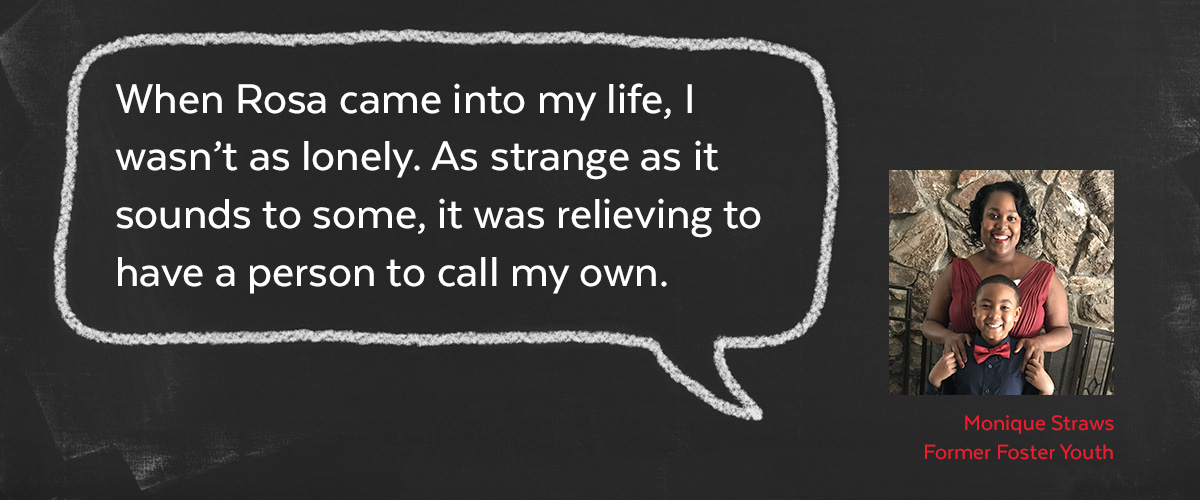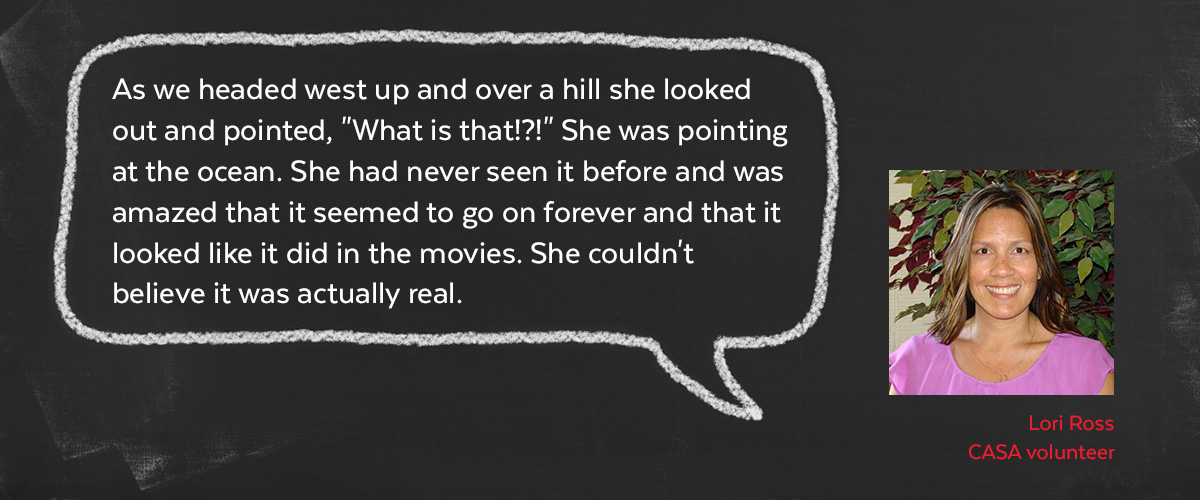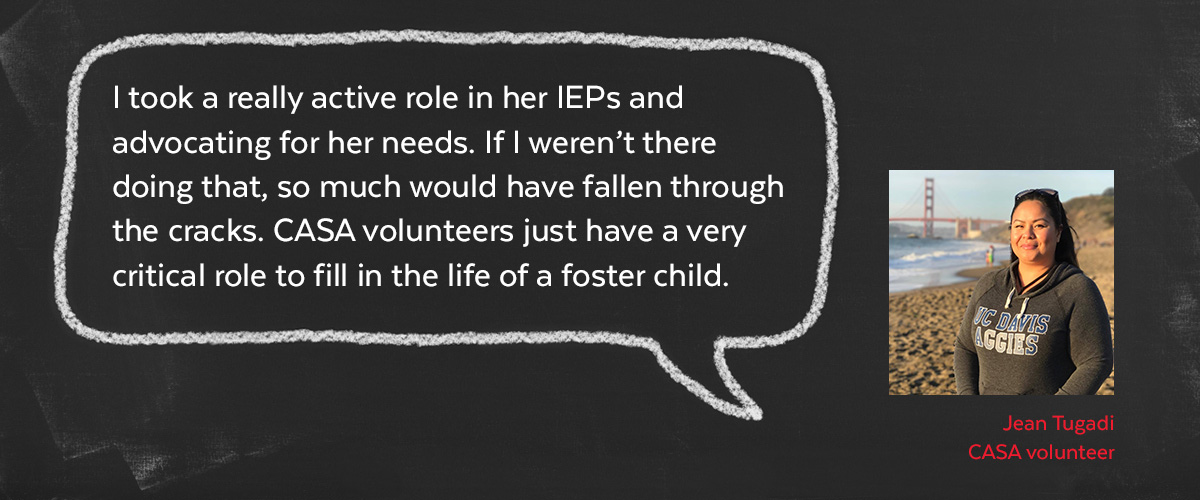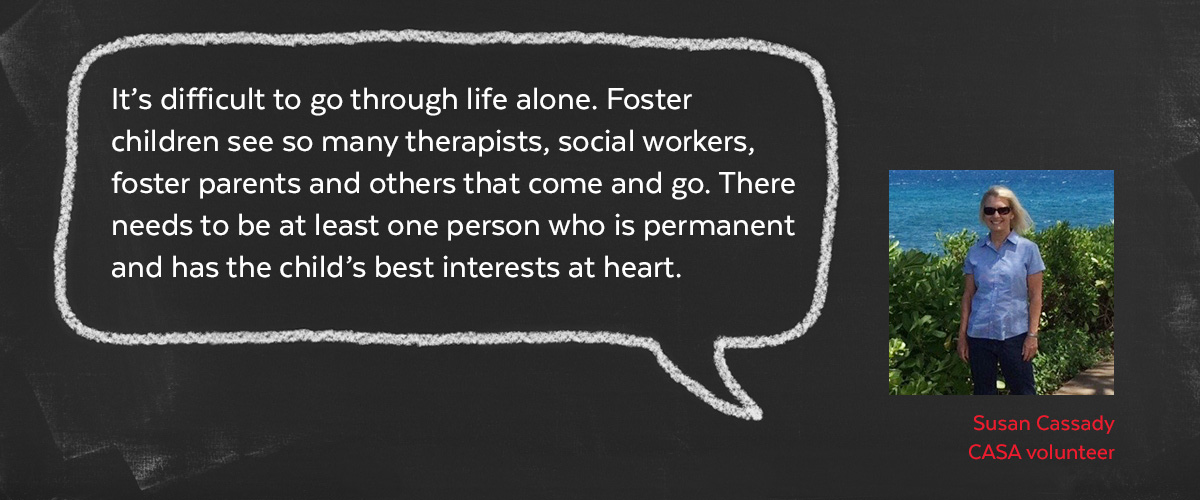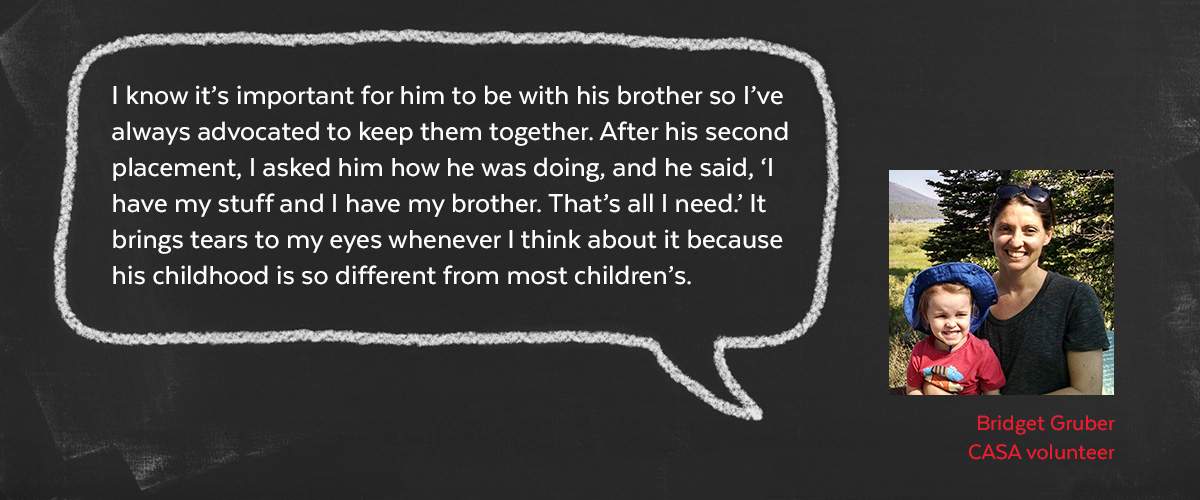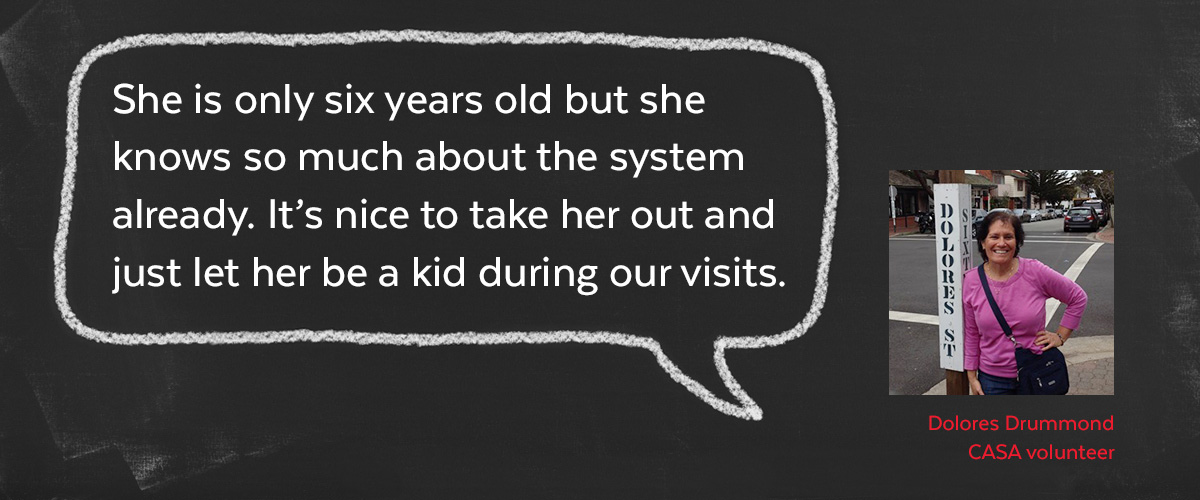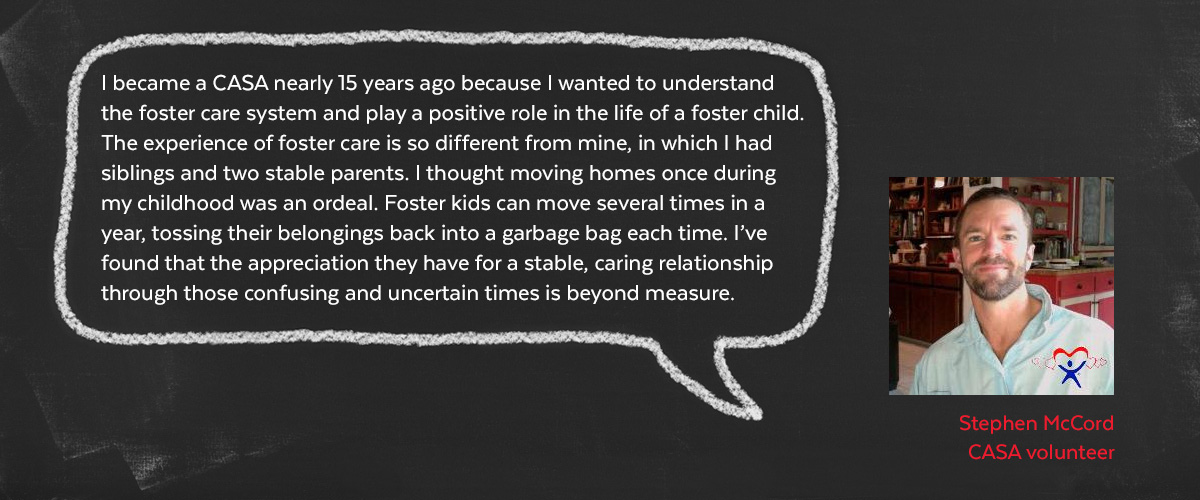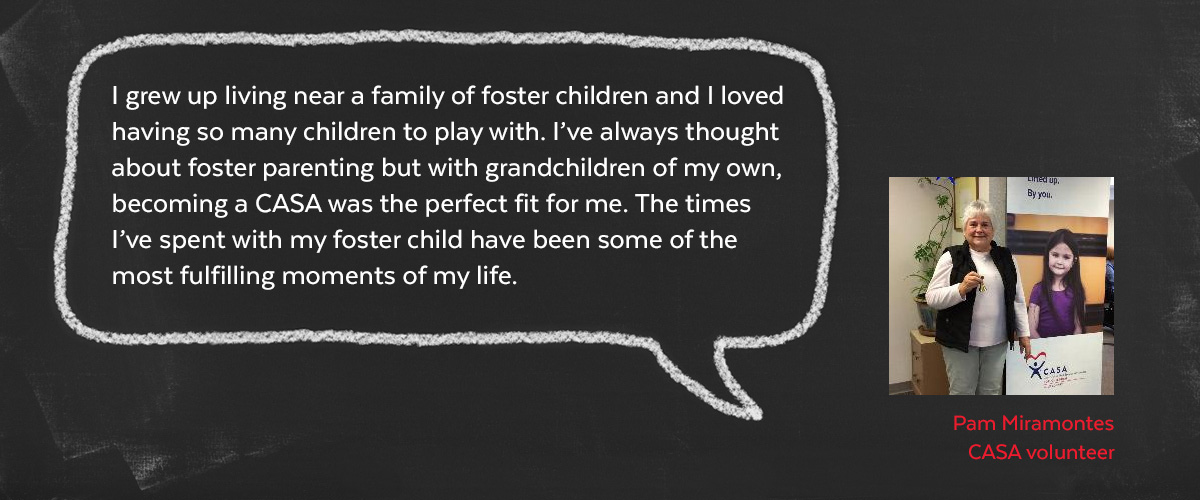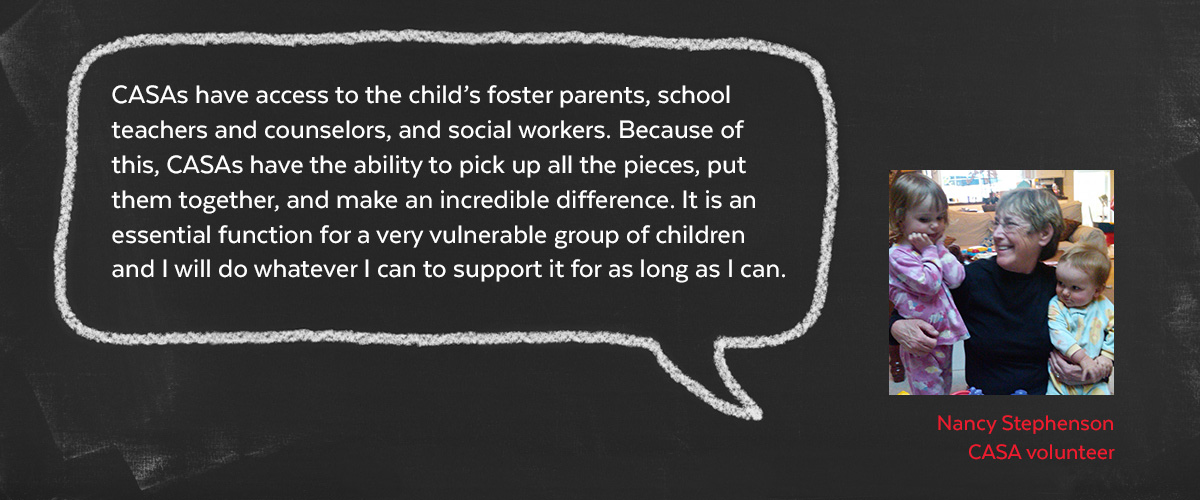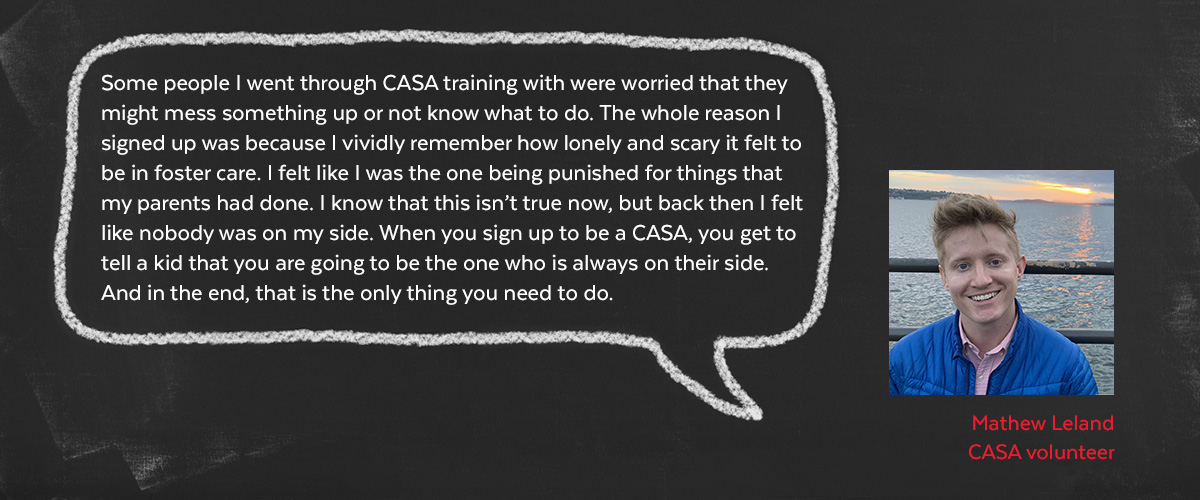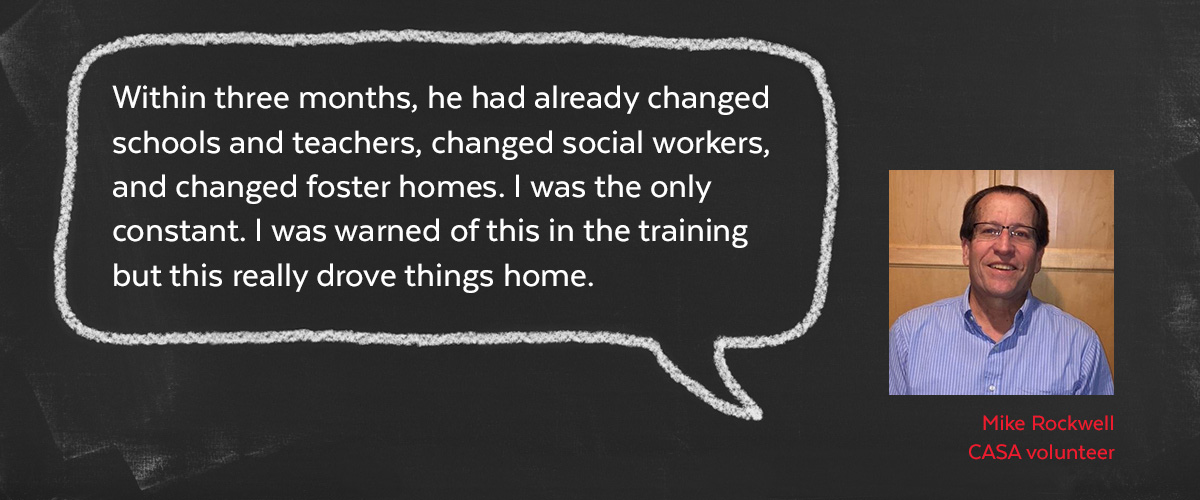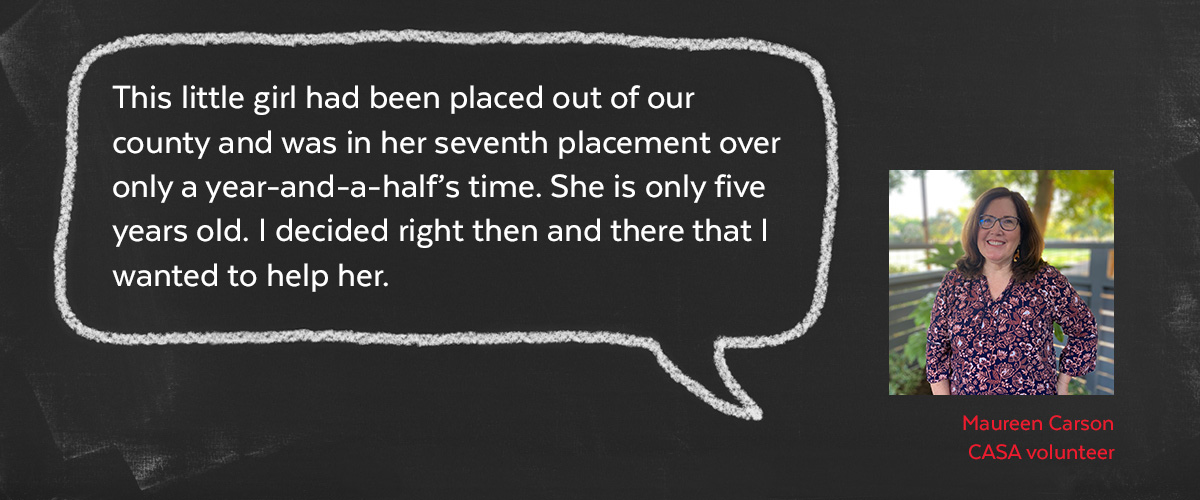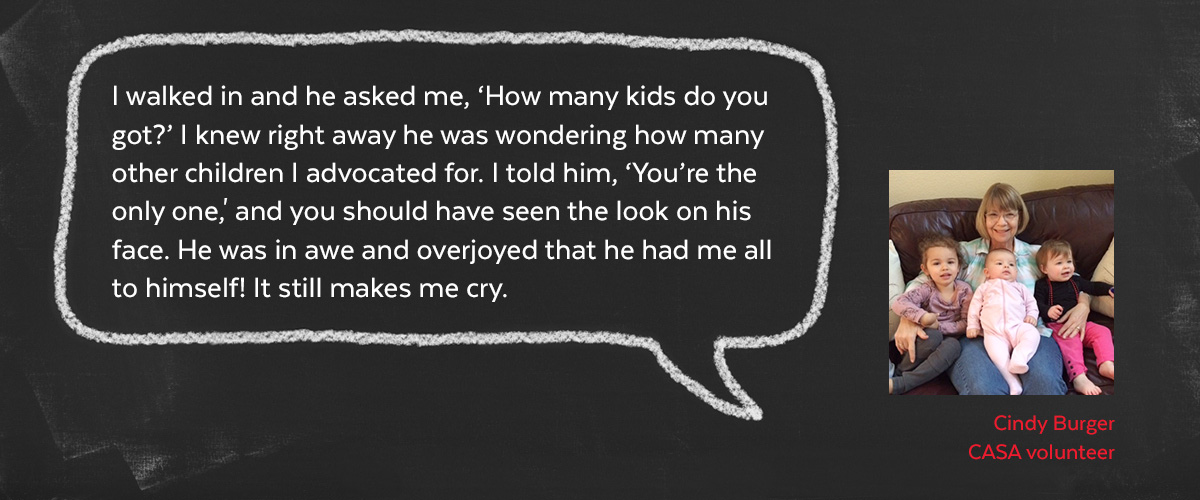Seetha Reddy heard about Yolo County CASA through a colleague and felt called to become one when the time was right. “When mydaughter left for college, I knew I would have the time that I wanted to devote to being a CASA volunteer. I was very excited when I was accepted into the training.” Three years later, Seetha has had three different CASA children.
With each of her CASA children, one thing became clear: The transience of people in foster children’s lives. “I realized that I was the only person that visited my foster child consistently. Often these children are lonely and uncertain about who is ‘on their side’ and who they can confide in. When parents are removed from a child’s life, their safety zone is taken away.”
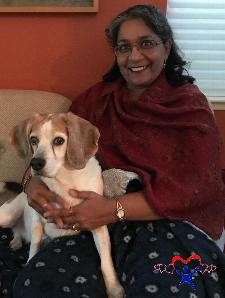
Being a trusted safety zone is important to Seetha. “I’ve always wanted my CASA child to know that they can blow off steam with me. I want them to know that they can be angry and talk about hard stuff without it having implications on their case. They’ve already gone through so many hard things in life; it is only natural that they have moments of frustration, sadness, and anger.” Seetha continues that the volunteer aspect of being a CASA puts her in a unique position to earn a foster child’s trust. “Each time I’ve met my CASA child for the first time, you could see that they were surprised that I wasn’t paid to see them frequently—that I came because I wanted to. Each one was also surprised that they were my only case. From day one, those aspects of being a CASA volunteer seemed to help them feel nurtured and protected.”
Seetha’s second CASA child’s case ended in an adoption. “Her adoption ceremony was one of the best days of my life. I saw her go from being really scared and wanting to please everyone when we first met to being a rambunctious preteen who trusted people. It took a lot of work to get there, but we did it together and it was incredible to see.” Seetha is still in touch with her second CASA child and sees her every few months. “With each of my CASA children I have been very clear that just because our formal CASA relationship has ended, it doesn’t mean we can’t be friends for a very long time. In fact, I hope we are always friends.”
As Seetha reflects on her time as a CASA volunteer, she talks about all of the things the experience has taught her. “I’ve learned a lot about myself. To really make progress you have to be patient and wait for the right moments. You slowly build a relationship of trust and then little by little, your CASA child opens up. I remember once I was driving with one my CASA children, and I pulled over because I knew my CASA child was about to tell me something really important and I wanted her to know I was 100% focused and there for her.” She continues, “It is so much harder than raising your own child because you are with your own child, you are with them each day and have several chances to model trust, love, and positive reactions. With a CASA child, you have to fit all of that into your visits.”
To anyone wondering if they should become a CASA volunteer, Seetha is highly encouraging. “We need CASA volunteers of all genders, ethnicities and socioeconomic backgrounds. Being South Asian has helped me relate to my CASA children who have also come from minority groups. If you don’t think you have enough resources or the right background to be a CASA volunteer, remember that all you need to give is time, patience and understanding.”
Thank you, Seetha, for stepping forward and doing so much for children who need it most.

